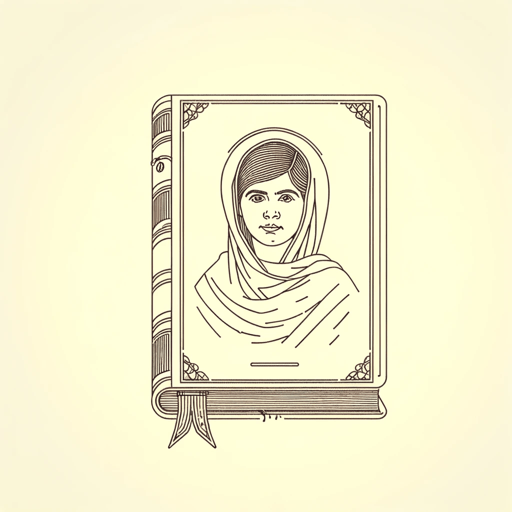87 pages • 2 hours read
Malala YousafzaiWe Are Displaced
Nonfiction | Autobiography / Memoir | YA | Published in 2018A modern alternative to SparkNotes and CliffsNotes, SuperSummary offers high-quality Study Guides with detailed chapter summaries and analysis of major themes, characters, and more. For select classroom titles, we also provide Teaching Guides with discussion and quiz questions to prompt student engagement.
Important Quotes
“When I close my eyes and think of my childhood, I see pine forests and snowcapped mountains; I hear rushing rivers; I feel the calm earth beneath my feet. I was born in the Swat Valley, once known as the Switzerland of the East. Others have called it paradise, and that is how I think of Swat.”
(Part 1, Chapter 1, Page 92)
Yousafzai begins We Are Displaced with a description of an idyllic childhood in a region filled with natural beauty. Her description of the Swat Valley helps the reader understand what this part of Pakistan was like before the Taliban insurgency made it such a dangerous place to live.
“This was not our Islam. These were religious fundamentalists who claimed they wanted to return to an old way of living, which was ironic considering that they used technology—the radio—to spread this very message. They attacked our daily way of life in the name of Islam. They told people what they could wear, what they could listen to, what they could watch. And most of all, they tried to take away the rights of women.”
(Part 1, Chapter 1, Page 109)
In this quotation Yousafzai explains that the Taliban represented a very different ideology and interpretation of Islam than what she was raised to follow. She describes the degree of control that the Taliban wanted to exercise over every day civilian life in the Swat Valley, Pakistan, including people’s clothes, hairstyles, media consumption, and education.
“By then, I had begun to write a blog for BBC Urdu that later helped the world beyond our country learn our story and the truth of the attack on girls’ education in Pakistan. I had written about how the walk to school, once a brief pleasure, had become a fear-filled sprint. And how at night, my family and I would sometimes huddle on the floor, as far away from the windows as possible, as we heard bombs exploding and the rat-a-tat-tat of machine guns in the hills surrounding Mingora. I missed the days when we had picnics in the same countryside.”
(Part 1, Chapter 2, Page 170)
Yousafzai’s continued references to the peaceful and stable time of her early childhood make her story more relatable to the average reader. In this quotation she also paints a picture of how her family’s quality of life and sense of safety severely declined as the Taliban’s presence in the Swat Valley grew.
Related Titles
By Malala Yousafzai
Featured Collections
Books that Feature the Theme of...
View Collection
Books that Teach Empathy
View Collection
Community
View Collection
Contemporary Books on Social Justice
View Collection
Education
View Collection
Family
View Collection
Fear
View Collection
Feminist Reads
View Collection
Grief
View Collection
Immigrants & Refugees
View Collection
Memory
View Collection
Middle Grade Nonfiction
View Collection
Politics & Government
View Collection
Required Reading Lists
View Collection
Safety & Danger
View Collection
War
View Collection



